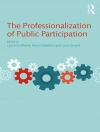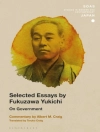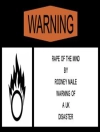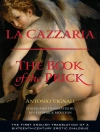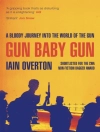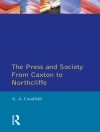Elie Wiesel (1928–2016) was one of the most important literary voices to emerge from the Holocaust. The Nazis took the lives of most of his family, destroyed the community in which he was raised, and subjected him to ghettoization, imprisonment in Auschwitz and Buchenwald, and a death march. It is remarkable not only that Wiesel survived and found a way to write about his experiences, but that he did so with elegance and profundity. His novels grapple with questions of tradition, memory, trauma, madness, atrocity, and faith.
The Struggle for Understanding examines Wiesel’s literary, religious, and cultural roots and the indelible impact of the Holocaust on his storytelling. Grouped in sections on Hasidic origins, the role of the Other, theology and tradition, and later works, the chapters cover the entire span of Wiesel’s career. Books analyzed include the novels
Dawn,
The Forgotten,
The Gates of the Forest,
The Town Beyond the Wall,
The Testament,
The Time of the Uprooted,
The Sonderberg Case, and
Hostage, as well as his memoir,
Night. What emerges is a portrait of Wiesel’s work in its full literary richness.
İçerik tablosu
Foreword
Peppy Margolis
Introduction
Victoria Nesfield and
Philip Smith
Part I. Hasidic Origins
1. Between Fiction and Reality: Elie Wiesel’s Memoirs
Menachem Keren-Kratz
2. The Death of Humanity and the Need for a Glory Culture: The Existential Project of Elie Wiesel
Yakir Englander
3. The Role of the Four Prophet Figures in
Night
Mary Catherine Mueller
Part II. The Other
4. Embracing Madness: Elie Wiesel’s Madmen and Their Role in His Works
Jennifer Murray
5. The Bystander in Elie Wiesel’s
The Town Beyond the Wall
Christin Zühlke
6. Enduring Anti-Semitic Christian Scripts in Elie Wiesel’s
The Gates of the Forest
Lucas Wilson
Part III. Theology and Tradition
7. Stories Untold: Theology, Language, and the Hasidic Spirit in Elie Wiesel’s
The Gates of the Forest
Ariel Evan Mayse
8. Testifying, Writing, and Putting God in the Dock: Elie Wiesel and the Crisis of Traditional Theodicy
Federico Dal Bo
9. The Importance of Memory: Jewish Mysticism and Preserving History in Elie Wiesel’s
The Forgotten
Eric J. Sterling
Part IV. Later Works
10. Transcultural Networks of Holocaust Memories in Elie Wiesel’s
The Time of the Uprooted
Dana Miha
˘
ilescu
11. Wiesel’s Political Vision in
Dawn,
The Testament, and
Hostage
Rosemary Horowitz
12. Allegories of the Holocaust in Elie Wiesel’s Late Fiction:
The Forgotten,
The Sonderberg Case, and
Hostage
Sue Vice
Contributors
Index
Yazar hakkında
Victoria Nesfield is Research Coordinator in the Humanities Research Centre at the University of York, in the United Kingdom.
Philip Smith is Professor of English at the Savannah College of Art and Design Hong Kong.


